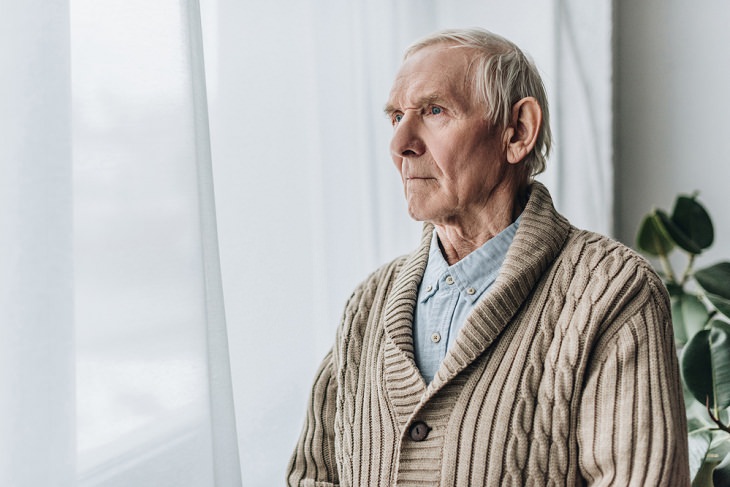It is certainly true that we’re more prone
to chronic illness and other health conditions as we approach our
advanced years, but the weakness and loss of balance that we often
associate with old age are actually signs of lack of exercise, and not
old age itself.
And the proof is in the pudding: the people who don’t submit to this
dangerous myth can run marathons, dance ballet, or lift weights all the
way into their 70’s and 80’s. Of course, these people are exceptional
and being an athlete in your golden years is not for everyone, but these
cases prove that staying active and capable irrespective of your age is
possible.
Myth 2. “I don’t have the time or money to exercise.”
This myth isn’t specific to seniors, it’s one that spans across all age
groups. The truth is, however, that you don’t actually need to exercise
for hours every day at the gym to stay fit. Experts recommend exercising
at least 150 minutes a week, which is around 20 minutes a day.
Even if you’re very busy, you can divide
this time into 2 chunks and just spend 10 minutes of walking in the
morning and another 10-15 minutes of yoga, strength building exercises
or sometimes even vacuuming your house or doing any other house work to
hit your daily activity goal. Any physical activity counts, and so you
don’t have to sign up for a gym membership to stay fit.
If you want to lift weights, you can use cans or bottles filled with
sand as your weights.
If you want to improve your flexibility and
balance, you can try some age-friendly chair yoga. In fact, we have an
abundance of free exercise routines that target different issues you can
try at home right now, here are just five:
The Ultimate Yoga Collection:
Find Your Perfect Yoga Practice
8 Exercises for Preventing Osteoporosis
6 Simple Stretches to Alleviate Chronic Pain
12 Easy Blood Circulation Stretches
Chair Yoga: a Complete At Home Video Practice
Myth 3. “Exercising at My Age is Unsafe, I’m Afraid to Fall and Break
Something.”

ones because it is precisely the lack of exercise that makes you have a
worse sense of balance and less strength, and so every time you don’t
exercise, you’re raising your own risk of injury
Myth 4. “Exercise is only beneficial for
the heart.”
After reading about the previous myth, you can probably already debunk
this one on your own. To be brief, exercise benefits your entire body,
starting from your heart, blood circulation, your lung capacity,
metabolism, digestive issues like constipation and gas, as well as your
bones and joints.
But even that is not the full list of the health benefits of exercise,
as it can also help your brain work properly, preventing dementia.
Finally, exercise also promotes mental health in several ways, here is a
dedicated article on this topic.
Myth 5. “I’m too weak to exercise.”
own self-image. We imagine someone who exercises as this bodybuilder or
professional yogi who can do all sorts of incredible feats with their
bodies. However, what is exercise to you isn’t what would count as
exercise to them. This is especially true when it comes to people who
just recently recovered from an illness or accident, who often find it
challenging to raise their hands or get up from a chair.
Don’t think that to truly exercise, you
need to start running marathons or turn yourself into a human pretzel.
If you find it difficult to walk for more than a few minutes, or even if
you’re bedridden, talk to a physical therapist or your physician and
ask them for exercises that can get you started off on a path of
self-improvement.
The best way to think of your own physical activity goals is “celebrate
what you can do and your personal accomplishments and don’t compare
yourself to others”.
Myth 6. “I Never Exercised When I Was Younger and Now It’s Too Late to
Start.”
You definitely didn’t do yourself a favor by being a couch potato for
decades, but that’s not a reason to give up on yourself now. It’s never
too late to start exercising, building strength, and increasing your
flexibility and balance. Certainly, experienced athletes have also
reaped the long-term benefits of exercise, but the absolute minimum that
starting an exercise routine will do for you is to build muscle, which
will help stabilize your bones and joints, increase your blood
circulation and lift your mood.
In fact, a recent study even showed that senior beginners are just as
good at building muscles as experienced senior athletes. There’s also
evidence that physical activity can help manage the symptoms of chronic
diseases, such as diabetes, and prevent their development in seniors.
So, even if you start exercising for the first time in your 60’s, 70’s
or later, it will benefit you plenty.









